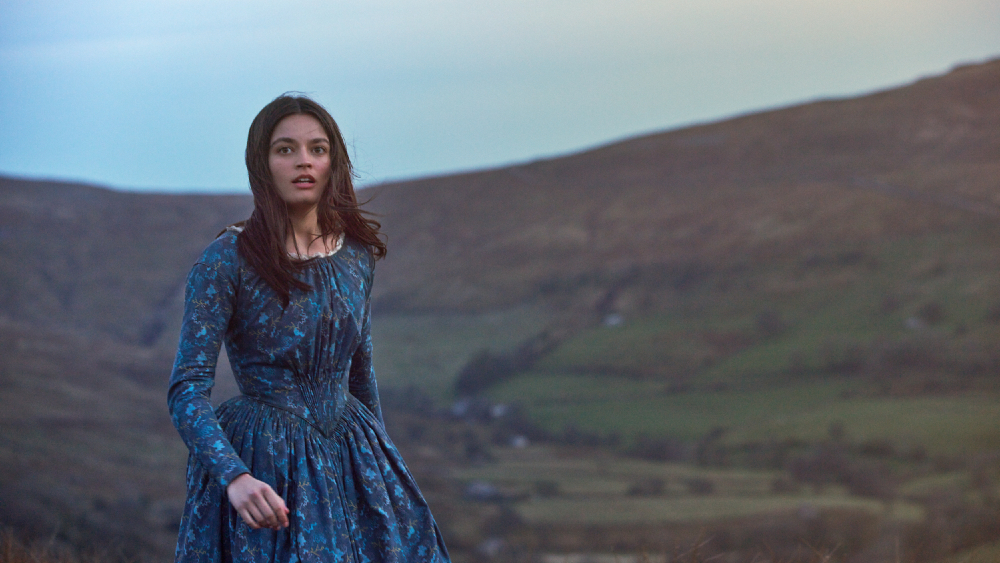




Dir.: Frances O’Connor; Cast: Emma Mackey, Alexandra Dowling, Amelia Gething, Fionn Whitehead, Oliver Jackson-Cohen, Adrian Dunbar; UK/US 2022, 130 min.
This big screen imagining of Emily Bronte’s life is a wild affair that will offend scholars but delight cinema audiences. Emma Mackey is dynamite as the 18th century poet and novelist who dares to have sex with a curate and revolts against patriarchy and her two sisters, who are only too happy to conform.
Emily is a rebel with a cause: the early death of her mother has seen two of her Brontë sisters Charlotte (Alexandra Dowling), Anne (Gething) cow-towing to their stern, rather blustery father Patrick (Dunbar), who regularly hammers home the word of God from the pulpit. His Byronesque son Branwell (Whitehead) will become a role model for Emily: she copies his tattoos proclaiming ‘freedom of mind’ and turns a blind eye to his opium habit which will be his undoing.
The new curate William Weightman (Jackson-Cohen) is handsome beyond belief but deeply wedded to God. All her sisters swoon over William, but only Emily takes action: their affair is passionate and sweepingly romantic, firing up her senses and sublimating real life into her poems and famous, and only, novel ‘Wuthering Heights’.
Alas, William gets cold feet, the fear of God and Patrick, his stand-in on Earth, plays on his conscience, driving him to terminate their affair. But on the eve of Emily’s departure with Charlotte to Brussels, the curate rues his decision, and gives a letter to Branwell, begging Emily to stay and be his love. The remainder of the drama plays out in this mood of utter devastation of mind and body, before the final triumph of ‘Wuthering Heights’.
The plot turns on the letter episode: O’Connor does not go with the submissive suffering of the three women – she hurtles headlong into Thomas Hardy territory and ‘Jude the Obscure’. But although Branwell is a less evil creature than Hardy’s Arabella, he still plays God to the detriment of the lovers.
DoP Nanu Segal makes nature as foreboding as the lovers’ souls with the English countryside blossoming in tune with the lovers’ springtime emotions and brooding in the murkiest of winter hues, as the camera exploring the ghostly atmosphere of the moors in gloomy tracking shots. Haworth, the village, where Emily is seen as an outsider, is shown as a bastion of local traders and shopkeepers.
Abel Korzenioski’s Gothic score ramps up the romance but the self-defeating story perseveres with its passionate tale of woe. The only slight drawback in this gut-wrenching tale about a woman colliding with a world run by men is the self-indulgent running time that takes away the sting of the bitter male/female confrontations. Although O’Connor plays fast and lose with a few literary facts this is no place for anaemic scholarly retrospection – Emily is a drama seen through the prism of female emancipation; a vivid re-imagining of what could have been. AS
ON RELEASE FROM OCTOBER 14 2022